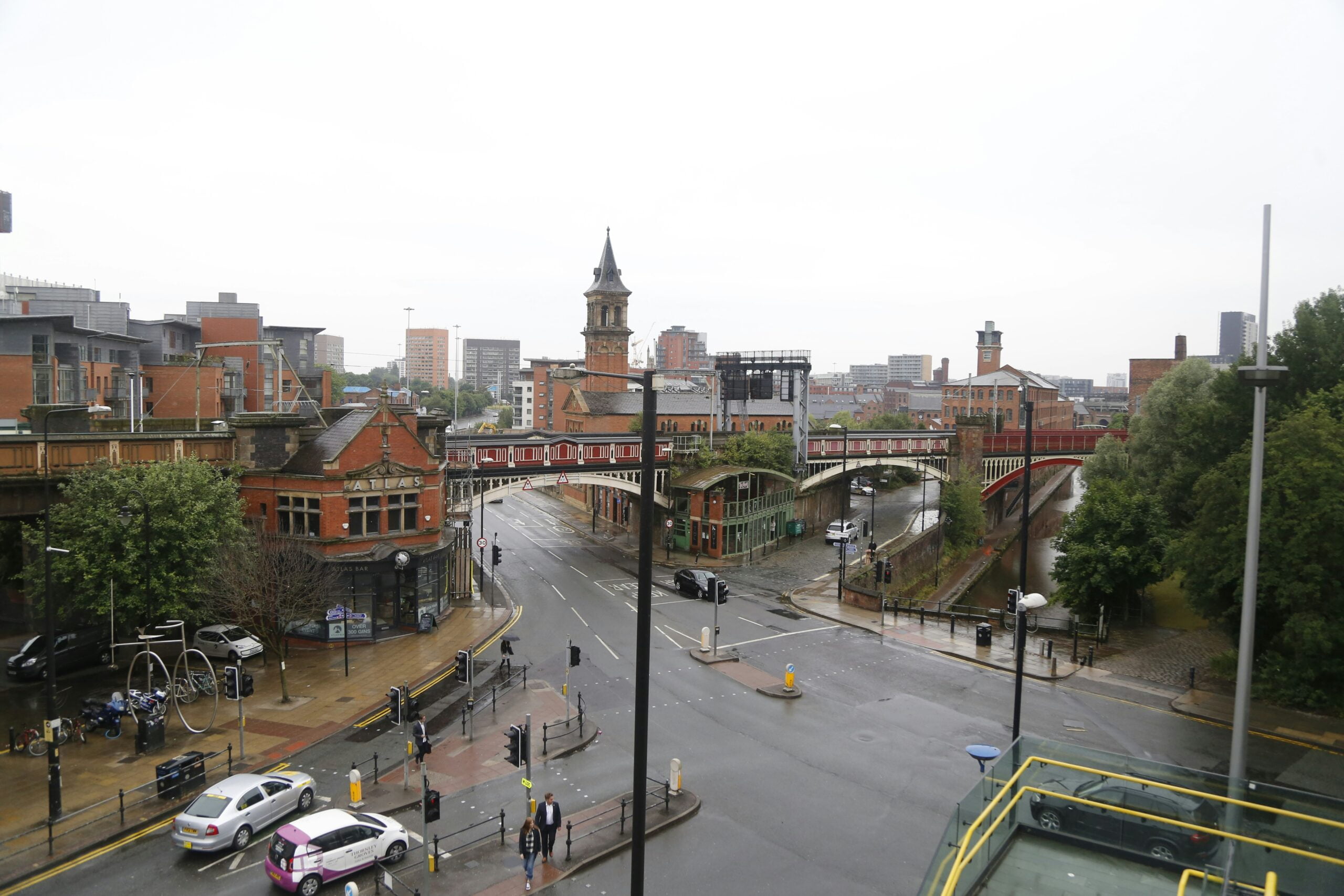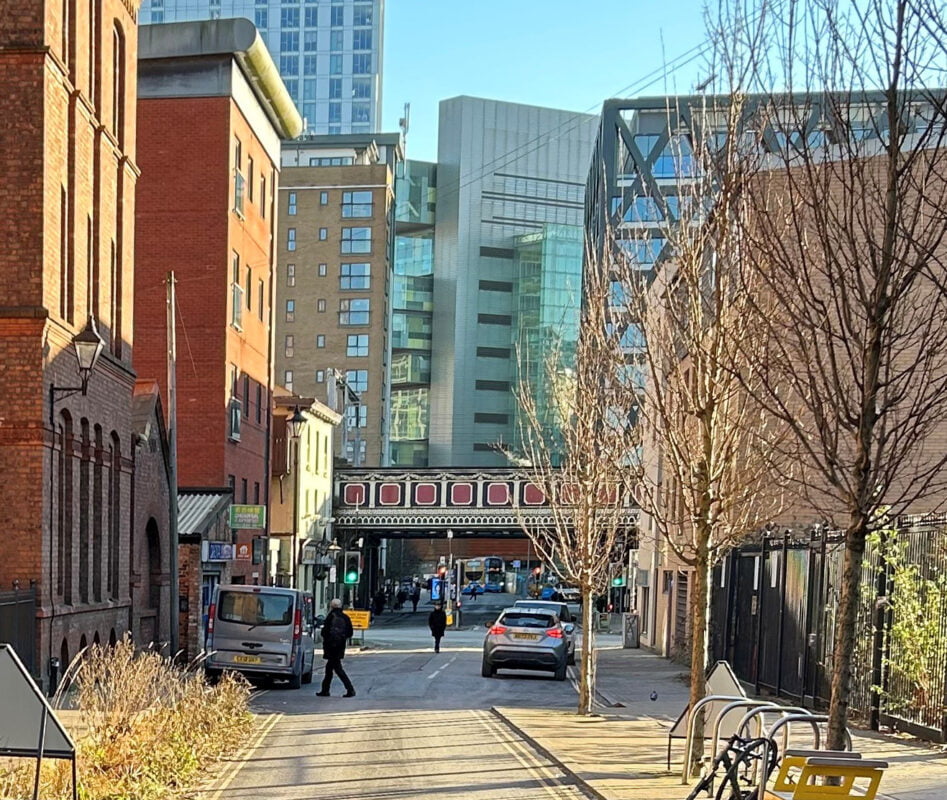
TEP was commissioned by the Greater Manchester Combined Authority (GMCA) as part of the Natural Course EU LIFE Integrated Project, a collaborative project in the Northwest of England, which sought cost-effective solutions to improving water quality across urban and rural landscapes.
TEP’s remit was to produce an online mapping tool that can be used to identify potential locations for the incorporation of green infrastructure, or Sustainable Drainage Solutions (SuDS), to mitigate the effects of diffuse pollution pressures associated with road runoff in Greater Manchester which is over 127,600 ha in size.
The first stage was to identify and map areas on Greater Manchester’s road network, that are likely to contribute large amounts of diffuse pollution. This used watercourse locations, traffic density at peak hours and average speed data to make predictions of pollution from standing and slow-moving traffic. This allowed 250 ‘hotspots’ of diffuse pollution to be identified which are the priority locations where the introduction of SuDS would have maximum benefits for the water environment.
TEP developed a Multi Criteria Decision Analysis approach using Ordnance Survey MasterMap land parcel boundaries to create a bespoke SuDS opportunity index. This drew upon eleven different categories (scored on a 1-5 scale), which had a weighting applied to give a total opportunity feasibility score for each land parcel. Categories included, land ownership, type of land cover, topography, public transport infrastructure and tree coverage.

The analysis provides an overall SuDS opportunity score for each of the 250 diffuse pollution hotspots, as well as a detailed MasterMap parcel breakdown for each area. This data has been used by City of Trees and Mersey Forest to explore the areas identified in more detail. Site investigations were conducted using satellite imagery, TEP web map data and local knowledge to create a list of locations for detailed site visits. An additional FieldMap data capture tool was added to the project to allow data from these site visits to be captured and presented in the same interactive webmap.
City of Trees and Mersey Forest are now actively exploring the opportunities highlighted from this tool and subsequent targeted site visits to assess opportunities to instal green infrastructure and SuDS solutions across Greater Manchester.
Mark Turner, Natural Course GM Team Leader at GMCA, said: “TEP successfully adapted our original brief and produced an excellent resource that will help GMCA, and our partners, to identify priority locations where green infrastructure can be enhanced to tackle diffuse pollution pressures associated with road runoff. This will help Greater Manchester to become more resilient to the demands of a changing climate as part of an integrated approach to the management of water in the city region”.
If you would like more information about this project, or to speak to a member of the team, please email us, we will be happy to assist.








